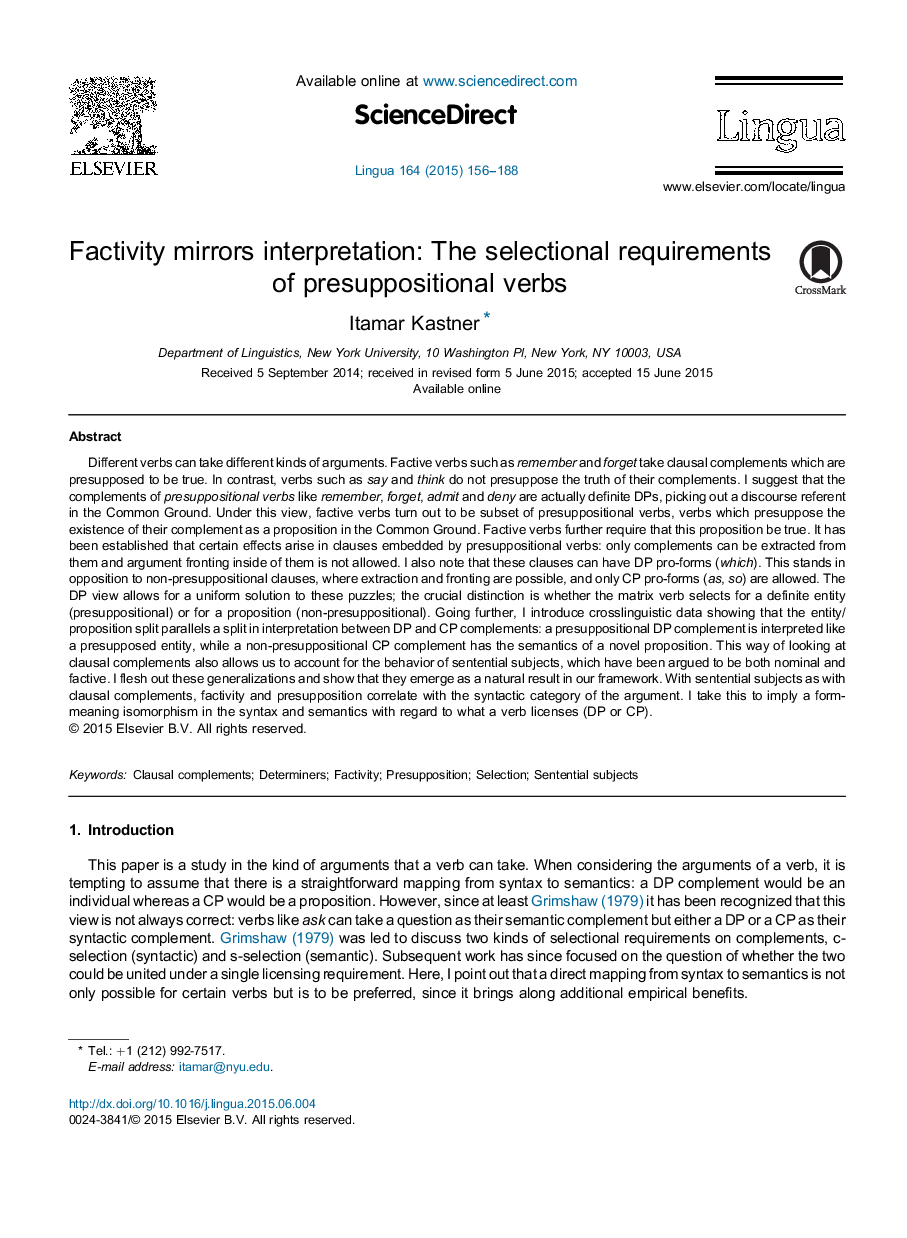| کد مقاله | کد نشریه | سال انتشار | مقاله انگلیسی | نسخه تمام متن |
|---|---|---|---|---|
| 10461112 | 923843 | 2015 | 33 صفحه PDF | دانلود رایگان |
عنوان انگلیسی مقاله ISI
Factivity mirrors interpretation: The selectional requirements of presuppositional verbs
ترجمه فارسی عنوان
تفسیر آینه تفسیر: الزامات انتخابی افعال پیش فرض
دانلود مقاله + سفارش ترجمه
دانلود مقاله ISI انگلیسی
رایگان برای ایرانیان
موضوعات مرتبط
علوم انسانی و اجتماعی
علوم انسانی و هنر
زبان و زبان شناسی
چکیده انگلیسی
Different verbs can take different kinds of arguments. Factive verbs such as remember and forget take clausal complements which are presupposed to be true. In contrast, verbs such as say and think do not presuppose the truth of their complements. I suggest that the complements of presuppositional verbs like remember, forget, admit and deny are actually definite DPs, picking out a discourse referent in the Common Ground. Under this view, factive verbs turn out to be subset of presuppositional verbs, verbs which presuppose the existence of their complement as a proposition in the Common Ground. Factive verbs further require that this proposition be true. It has been established that certain effects arise in clauses embedded by presuppositional verbs: only complements can be extracted from them and argument fronting inside of them is not allowed. I also note that these clauses can have DP pro-forms (which). This stands in opposition to non-presuppositional clauses, where extraction and fronting are possible, and only CP pro-forms (as, so) are allowed. The DP view allows for a uniform solution to these puzzles; the crucial distinction is whether the matrix verb selects for a definite entity (presuppositional) or for a proposition (non-presuppositional). Going further, I introduce crosslinguistic data showing that the entity/proposition split parallels a split in interpretation between DP and CP complements: a presuppositional DP complement is interpreted like a presupposed entity, while a non-presuppositional CP complement has the semantics of a novel proposition. This way of looking at clausal complements also allows us to account for the behavior of sentential subjects, which have been argued to be both nominal and factive. I flesh out these generalizations and show that they emerge as a natural result in our framework. With sentential subjects as with clausal complements, factivity and presupposition correlate with the syntactic category of the argument. I take this to imply a form-meaning isomorphism in the syntax and semantics with regard to what a verb licenses (DP or CP).
ناشر
Database: Elsevier - ScienceDirect (ساینس دایرکت)
Journal: Lingua - Volume 164, Part A, September 2015, Pages 156-188
Journal: Lingua - Volume 164, Part A, September 2015, Pages 156-188
نویسندگان
Itamar Kastner,
